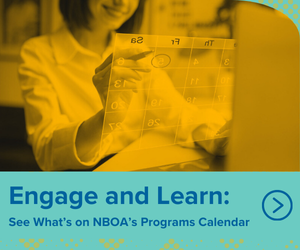
NBOA President and CEO
Let’s assume for the moment that our independent schools provide high quality preK-12 education. Can we say the same for the level of service we provide parents and families? Now imagine if we and certain “free” competitors within our marketplace, such as well-funded public schools and charter schools, provide a comparable quality of education. Could our exceptional customer service stand out as the defining difference between us and them? I believe it could.
I understand the hesitation among many in our industry to think of our schools as a business. However, NBOA and business officers have made the case time and time again that independent schools must apply basic business principles to be financially successful. Moreover, I believe that we are not being honest if we do not think of ourselves as offering a premium service. What else would you call the highest-priced option in the market? When are we ever the less-expensive option?
In the absence of a miracle (say, slashing our operating costs without compromising our educational quality), we must learn from “luxury” brands within other industries.
In the absence of a miracle (say, slashing our operating costs without compromising our educational quality), we must learn from “luxury” brands within other industries. There is usually a strong relationship between price and service, and consumers who pay top dollar usually and rightfully expect better quality and service alike. We in independent schools can amplify our value propositions by not just offering world-class education, but also supporting that education with world-class customer service. And — here’s where I get radical — I think human resource professionals are the natural leaders of the movement.
I’ve been thinking about this concept for a while in my role at NBOA and as an independent school parent and trustee. Customer service is a mindset that a school’s culture either has or doesn’t have. It’s not up to the head of school, the admissions office or even the HR director. The entire faculty and staff must be on board to deliver premium customer service to our parents and students.
Think about where you might have opportunities to exceed expectations with customer service. First impressions are certainly important. I’ve visited enough schools to know that admissions professionals and reception staff almost universally provide great service and create positive impressions. What about other aspects of the school? How do we instill that culture of customer service to faculty, to support professionals, to maintenance staff, to volunteers — and not just those volunteers on the board of trustees?
I posed this question to HR professionals within the NBOA community. The good news is that this issue is on their radar screen. They know, as articulated this issue's cover story, that employees are more likely to enjoy their work and exceed expectations if they feel valued and engaged. Several HR pros mentioned books that had helped them start the conversation. A few others cited standards they have implemented, such as responding to family and student requests within 24 hours. “Even if the response is, ‘I need to get back to you,’ we have set a clear expectation,” the HR leader told me. “We also tell our families to expect this.”
Perhaps the concerning news is that it seems we have some work to do. As we all grapple with the cost of providing a world class preK-12 education, a sincere effort to create a customer-service mindset wouldn’t necessarily have to cost much or even require an FTE. But it could pay dividends for years to come with regard to our defining difference compared to our growing list of competitors.





